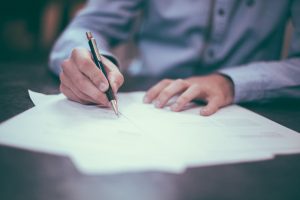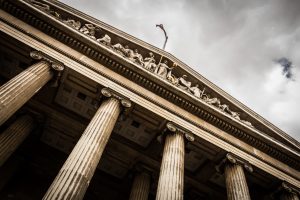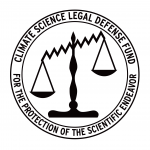December 4, 2018
Science, Advocacy, and the Law at the Fall Meeting
Posted by Laura Lyon
Editor’s Note: The following guest blog is written by Rebecca Fowler, Communications Director of the Climate Science Legal Defense Fund.
A growing number of geoscientists are engaging in advocacy and activism, and realizing that legal literacy is essential when science is in political crosshairs.
Several offerings at the Fall Meeting will arm scientists with the knowledge they need to safely and effectively speak up for science in various settings. These include two new workshops and an opportunity for scientists to receive a free consultation with an attorney from the Climate Science Legal Defense Fund (CSLDF).
These events are part of the Legal Education for Scientists Program, a seven-year collaboration between CSLDF and AGU, designed to help scientists understand their legal rights and responsibilities.
Get Free Advice from an Attorney

Helloquence/Unsplash
Scientists from all disciplines can receive a free, private consultation with a CSLDF attorney during the Fall Meeting. This is an opportunity to seek legal advice or ask questions related to your research and work. Email [email protected] to make an appointment.
Meetings are available in 30-minute slots from 8:00 a.m.–3:30 p.m., Monday, December 10 through Thursday, December 13 in the Anacostia Room at the Marriott Marquis (901 Massachusetts Ave NW). We encourage you to book in advance, but walk-ins are welcome.
Workshops
How to Get Involved in the Rulemaking Process
Tuesday, December 11, 11:30 a.m. – 12:30 p.m.
Room 208A/B at the Walter E. Washington Convention Center
When federal agencies seek to adopt new regulations, they must open the proposed rule to public comment so citizens can be involved in making rules that affect them. There is also a growing trend encouraging people to petition lawmakers in Congress or communicate their support or disapproval for proposed measures. In this session, you’ll learn how to safely and effectively participate in these important policymaking processes.
Science in Court: Becoming an Expert Witness and Climate Litigation
Thursday, December 13, 12:30-1:30 p.m.
Room 208A/B at the Walter E. Washington Convention Center

Sebastian Pichler/Unsplash
The legal system relies on scientists to provide expert testimony on subjects such as geosciences and environmental health. Even if you’re never called to serve as an expert witness, there are benefits to understanding how to participate in this process, such as communicating scientific expertise to non-experts, and conveying credibility and confidence in your work. In this session, you’ll learn how to act as an expert witness; the discussion will cover a growing roster of climate liability lawsuits, how science and law interact, and more.
Learn More About CSLDF

CSLDF is a non-profit organization that protects the scientific endeavor by providing free legal services and education to scientists who are threatened, harassed, or attacked for doing their job. Visit csldf.org to learn about our work and how you can help us protect academic freedom and scientific integrity.
Don’t forget to also check out the full lineup of AGU Science Policy events at Fall Meeting.

